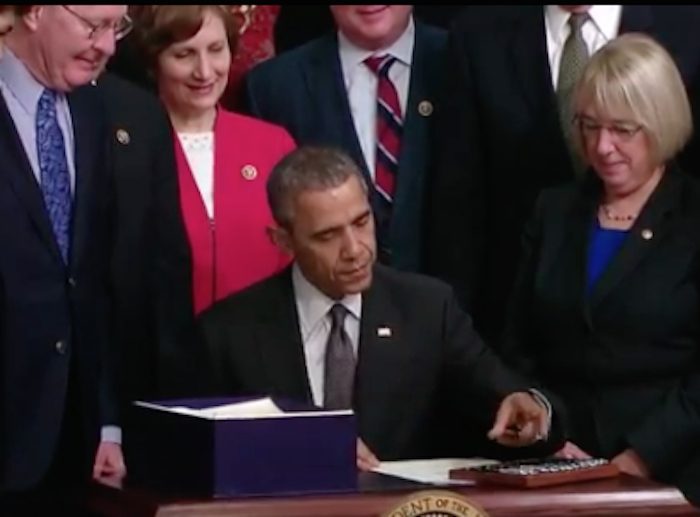
Black teachers: How to recruit them and make them stay

Lessons in higher education: What California can learn

Keeping California public university options open

Superintendents: Well-paid and walking away

The debt to degree connection

College in prison: How earning a degree can lead to a new life

One week after President Barack Obama signed the Every Student Succeeds Act, the U.S. Department of Education sent out a four-page letter today to the school chiefs of every state providing guidance for what to do during the transition period to the new law, which will go into effect in the 2017-18 school year.
As part of the transition, the federal government will hold two public hearings, one in Washington D.C., and one in Los Angeles. The California meeting is scheduled for Jan. 19.
The federal hearing is scheduled a week after the State Board of Education meeting, at which the board will hear a presentation on the impact of the new law on California’s plan to create a new school accountability and improvement system over the next year. Federal education officials currently are drawing up regulations designed to flesh out the new law and actions the states must take in the transition to it from the No Child Left Behind Act.
The letter to the state chiefs indicates that the Department of Education is conducting “a careful review” of the work each state is currently engaged in. It also pledged to “provide ongoing guidance to support schools, districts and states in the transition to ESSA.” ESSA is the acronym that is being used as shorthand to describe the new law.
What complicates the transition to the new law is that most states have been issued waivers from some of the most onerous provisions of the No Child Left Behind law. A small number of states which either did not apply for a waiver or did not receive one, including California, are still subject to the provisions of the old law, the No Child Left Behind law. There is almost universal agreement that law has run its course and did not succeed in coming close to reaching the ambitious goals it was intended it to achieve — academic proficiency of every public school child in America.
Ann Whalen, who is acting assistant secretary for elementary and secondary education, conceded that her own department is reviewing the act “to better understand the impact of any changes to the requirements for state assessment systems.” But, she wrote, “the essential requirements are unchanged.”
She did note that the states will not have to submit new “annual measurable objectives” for the department’s review and approval by next month, as currently required. At the same time, she said that all states and districts “must continue to publish report cards that include information that shows how a district’s student achievement on state assessments compares to students and subgroups of students in the state as a whole.”
Whalen also acknowledged that the guidance letter itself would raise additional questions, especially about how it applies to individual schools and districts. She said that more answers will be provided on the department’s website and questions could be emailed to essa.questions@ed.gov.

Legislation that would remove one of the last tests teachers are required to take to earn a credential in California passed the Senate Education Committee.

Part-time instructors, many who work for decades off the tenure track and at a lower pay rate, have been called “apprentices to nowhere.”

A bill to mandate use of the method will not advance in the Legislature this year in the face of teachers union opposition.

Nearly a third of the 930 districts statewide that reported data had a higher rate of chronic absenteeism in 2022-23 than the year before.
Comments
Comments Policy
We welcome your comments. All comments are moderated for civility, relevance and other considerations. Click here for EdSource's Comments Policy.